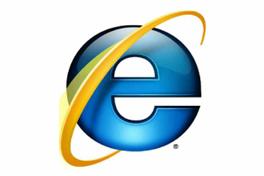Internet Explorer: Is there any way back?
Rivals aren’t quite snapping at its heels yet, but can Internet Explorer 8 arrest the decline of Microsoft’s browser?

For instance, back when Internet Explorer 8's first beta appeared on 5 March 2008, Firefox was up to version 2.0.0.12. By the time the second beta of IE8 appeared on August 27th 2008, Firefox 2 had been updated four times to 2.0.0.16, and three release candidate editions of Firefox 3 had been made available as well, followed by its actual launch and one further update.
Google also had Chrome out too, just to add a bit more competition.
On 26 January of this year, Microsoft revealed its first release candidate of Internet Explorer 8, and again, Firefox had enjoyed several updates in the intervening period. What's more, Firefox is readying itself for a beta of a major update up to version 3.5. And still we wait for even a formal release date for the finished Internet Explorer 8, over a year after that first beta emerged.
And that's why Microsoft is, at best, spending millions upon millions of dollars to tread water. Even ploughing thousands of staff into the project won't keep the pace anywhere near that of Firefox, and what innovations Microsoft undoubtedly pours into its product are tempered simply by the time it takes to get them into a finished released.
Market lift
Internet Explorer 8 will inevitably give Microsoft a bit of a lift in the market, but the problem is that there's no guarantee that it'll give the firm any kind of long-term gain. After all, the users who have migrated to alternative browsers are going to be difficult to woo back, and the fight is as much about holding onto to who it has, as opposed to necessarily growing market share.
That in itself isn't a disaster. After all, more than two-thirds of us who use the internet are still viewing the world wide web through a Microsoft browser, and there's not a single one of its rivals that wouldn't strive for that kind of market dominance.
Get the ITPro daily newsletter
Sign up today and you will receive a free copy of our Future Focus 2025 report - the leading guidance on AI, cybersecurity and other IT challenges as per 700+ senior executives
That said, the job of Internet Explorer 8 has surely evolved: it's now no longer a case of trying to restore IE to its former position, because it seems impossible to think that any one web browser will come close to 95 per cent market dominance again. Instead, it's about slowly, and ideally stopping, the decline in its usage.
The early signs are, to be fair, that Internet Explorer 8 is an improved product with a good feature set. It's less bloated, for starters, and has some impressive features. But Microsoft is about to release an operating system in Windows 7 where it'll be easy, arguably for the first time, to switch Internet Explorer off.
And while its logo will still be there, Microsoft may be looking at the irony of having its strongest ever web browser, but lacking the equally strong tool that was undoubtedly used to the chagrin of authorities across the planet to get it under people's nose in the first place.
Will people go out of their way to download a Microsoft web browser by active choice? It's a tough one. But things have changed to the point that if, in twelve months' time, the firm has managed to retain 65 per cent market share, you'd have to chalk that down as some kind of victory in itself.
-
 Why keeping track of AI assistants can be a tricky business
Why keeping track of AI assistants can be a tricky businessColumn Making the most of AI assistants means understanding what they can do – and what the workforce wants from them
By Stephen Pritchard
-
 Nvidia braces for a $5.5 billion hit as tariffs reach the semiconductor industry
Nvidia braces for a $5.5 billion hit as tariffs reach the semiconductor industryNews The chipmaker says its H20 chips need a special license as its share price plummets
By Bobby Hellard